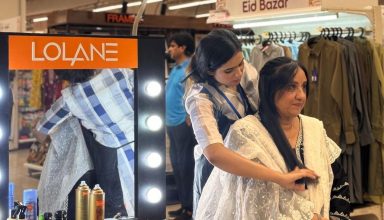Dubai: British expat, who underwent eight heart surgeries as a child, on raising awareness on heart health

Dubai: British expat, who underwent eight heart surgeries as a child, on raising awareness on heart health

Hannah Phillips grew up feeling different. While externally, she looked like any other person; inside, she was dealing with a rare heart condition. “It’s hard to explain to your peers why you’re missing school or why an ambulance is being called to school every week.”
Phillips was suffering from complicated Ebstein’s Anomaly, a condition that counts for 1 per cent of all congenital heart defects. It affects the tricuspid valve in the heart, which is in the wrong position, and the valve flaps are not formed properly as a result of which it doesn’t work effectively. “I was also born with a hole in my heart, which was covered during an open heart surgery in 2004,” recalls the British national, whose day job sees her donning the hat of a teacher.
Born three months premature on her parents’ wedding anniversary, doctors had found a murmur in Hannah’s heart because of which she was kept in an incubator. When she was only six months old, she caught meningitis of the brain and, according to Hannah, this is when “the adventure started”.

Diagnosed with Ebstein’s Anomaly, Hannah went on to have eight heart surgeries, including the aforementioned open heart surgery, and has had two pacemaker insertions. The first time she had an open heart surgery was when she was only nine years old. “It was a nine-and-half hour surgery to cover the hole and fix the valves in my heart,” she says, recalling the fact that her mum documenting everything has only meant that her memories of the time remain vivid.
“I had various other surgeries between that and my first pacemaker insertion in 2012, they were to correct abnormal arrhythmia, fast or slow heart rates. I had my first pacemaker put in at the age of 16, I was struggling to cope with my heart’s rhythm constantly changing and it was decided they’d put a pacemaker in to help. The pacemaker did wonders, it helped me come off beta blockers and live as normal a life as possible.”
Pacemakers are battery powered and Hannah’s first one ran out of battery in June 2021, “when I collapsed one afternoon in school”. “It was a quick turnaround from that point, within three weeks I was on the operating table. My second pacemaker surgery was complicated by a pneumothorax, air in the lung. My lung had 75 per cent collapsed and I had to have it manually reinflated, it was one of the worst treatments of my life. You’re fully conscious and the needle jabbing deep into your sides is not something I will forget anytime soon. It took me longer to recover from that surgery and I know I still have a little way to go but I am ever so grateful for the technology that keeps me here.”

While Hannah could never fully comprehend her situation, the shocking part, she says, was ironically the healing. “No one would tell me that the healing process would be just as (or even more) painful than the treatments I have been through; it hits in a different kind of way. Everyone talks about going inwards, seeking from the inner parts of you, but when the body is entangled with disease, it can make that journey uncomfortable. There are layers to offload and a new kind of love for the body that must be found.”
Working as a schoolteacher in Dubai has helped immensely. “It allows me to tap into my inner child often, laugh often and find great joy in small moments,” she says. “Children find laughter and hope amidst challenge, and they remind me to do this in my own uncertainty. There is hope to be found in despair, our minds can take us out of that place, remind us to be playful.”
Shifting halfway across the world to Dubai wasn’t an easy decision. While her family had been largely supportive, the implanting of the second pacemaker three weeks before she moved here did scare her parents a bit. But rather than finding excuses to stop the move, they found every reason for Hannah to go.

“The move has been both intense and liberating, I am learning a huge amount about the person I was, am and who I want to be. I realise that I was quite dependent on my parents when it came to my illness and that’s a place I’d like to slowly move away from, to have the confidence to advocate for myself, give consent and handle treatment with the support of the newfound family I have around me.”
Today, she says, the pain she feels is centred on this idea that her body became an object for a while. “Surgeons do this job day in and day out and I wouldn’t be here if it wasn’t for them, but their fingerprints stain my skin. I have been stitched and re-stitched on many occasions and that’s becoming harder to wrap my head around. Having surgeries older means that the recovery time is longer and they’re not elements I thought about growing up. The biggest impact it has had is that I haven’t had a chance to be in a relationship, and it scares me. I am happy on my own, with the family and friends that I have around me, though I do believe these are impacts of long-term illness that not many would consider,” she says.

“Having said all of that, my heart has taught me an incredible amount. The heart is the magnificent within us all. Mine has taught me to be vulnerable in the face of adversity; knowing that sometimes tears or anger or frustration are the best coping mechanisms in our toolbox at certain moments. To forgive self gradually when things don’t seem to align and approach the body with softness. My heart calls me to be bold and brave and to live with zest. To laugh loudly and love expansively! To give with all of who I am, for giving brings joy. It helped me learn the art and beauty of escapism; the power that the mind can have in finding hope through darkness. The ability we all must step into another’s shoes and say I see you,” she says.
Perfectionism does not exist and Hannah says that gives birth to curiosity, adventure and striving for better. “Not perfect can also be wonderful. To go within can be scary, to listen to the heart’s rhythm with intent can be painful but it also brings great peace. It carries stories and experience, grit and humour.” And so much more!
anamika@khaleejtimes.com
ALSO READ:
source: khaleejtimes


